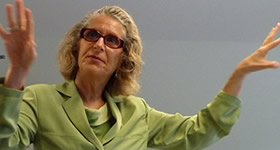This is a marvelous book – What Money Can’t Buy: The Moral Limits of Markets, by Harvard professor Michael J. Sandel. Sandel is an important political philosopher. He teaches a course called “Justice” at Harvard, which is now available to view online.
The book’s theme: “Today, the logic of buying and selling no longer applies to material goods alone but increasingly governs the whole of life. It is time to ask whether we want to live this way.”
Sandel gives us an exciting (yes, exciting and very scary) overview of the evolution of economics. He takes us into today’s era of “market triumphalism,” which says that everything that the market does is peachy keen. The new norm (and new normal) is driven by an economic exchange process only. Nothing else matters. There is no fundamental value to anything. The market is what matters.
Sandel explains the evolution of economic reasoning. He explains the demise of Adam Smith’s concept of the “invisible hand.” Smith’s concept of economics stated that the markets have no impact other than the efficient exchange of goods. My how surprised Smith would be to watch economics and markets today.
Here’s a terrifying description of economics by economist Greg Mankiw: “There is no mystery about what an ‘economy’ is. An economy is just a group of people interacting with one another as they go about their lives.”
So that means the buying and selling of children is okay, as long as each side is satisfied. Paying for the sterilization of drug addicts (to stop the spread of HIV/AIDS) is the greater good. The killing of endangered species is okay if we earn some money to save other species. As Sandel notes, according to Mankiw, “economics is about not only the production, distribution, and consumption of material goods but also about human interaction in general and the principles by which individuals make decisions.”
Apparently, in the olden days – and perhaps still today – economists claim that economics has no moral basis and doesn’t create any kind of moral conundrum. Hmmm… But think about incentives, Sandel tells us. Incentives are “interventions that the economist (or policy maker) designers, engineers, and imposes on the world. They are ways of getting people to lose weight, or work harder, or pollute less.”
Sandel quotes researchers Levitt and Dubner about the joy economists have with incentives. “The typical economist believes the world has not yet invented a problem that he cannot fix if given a free hand to design the proper incentive scheme. His solution may not always be pretty – it may involve coercion or exorbitant penalties or the violation of civil liberties – but the original problem, rest assured, will be fixed. An incentive is a bullet, a lever, a key: an often tiny object with astonishing power to change a situation.”
Coercion. Violation of civil liberties. Exorbitant penalties. Are these always okay in every situation in our society?
The market now operates in every sphere of life…the markets have invaded every area of life – and Sandel gives us very specific examples…from family life to friendship, sex and procreation, health and education and welfare, nature and art… Nothing is safe from the market. Everything can be seen – and is manipulated – by economics.
Sandel is careful about moralizing – although it’s clear that he is very concerned. What he wants us to do – as a society – is stop embracing market triumphalism without questioning it. What Sandel wants us to do is actually think before we act. Talk before we accept. Examine before we embrace.
Of course we disagree about acceptable norms. Of course different people have different beliefs. But the bottom line is – a smart society does not follow blindly, willy nilly. Smart people look before they leap. We have to examine and explore and question and argue. That’s what a healthy society does.
As Sandel says, “once we see that markets and commerce change the character of the goods they touch, we have to ask where markets belong – and where they don’t. And we can’t answer this question without deliberating about the meaning and purpose of goods, and the values that should govern them.”
Sandel observes: “At a time of rising inequality, the marketization of everything means that people of affluence and people of modest means lead increasing separate lives…. You might call it the skyboxification of American life. It’s not good for democracy, nor is it a satisfying way to live.”
And, finally, Michael Sandel asks you and me: “Do we want a society where everything is up for sale? Or are certain moral and civic goods that markets do not honor and money cannot buy?”
Read this book, What Money Can’t Buy: The Moral Limits of Markets. Check out Sandel on YouTube. Amazing. Insightful. Thought provoking. Scary. And very sad.

